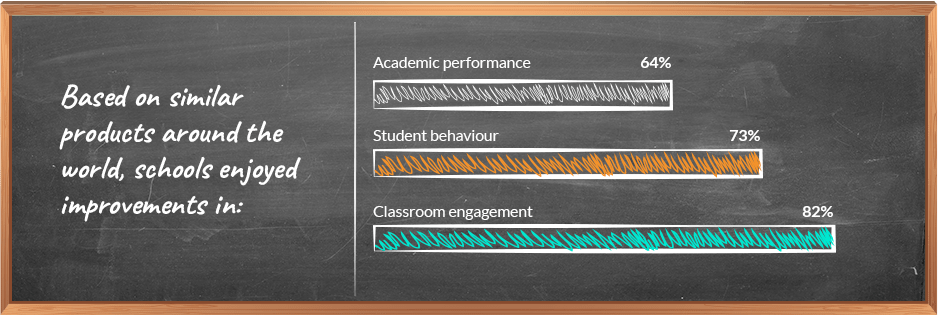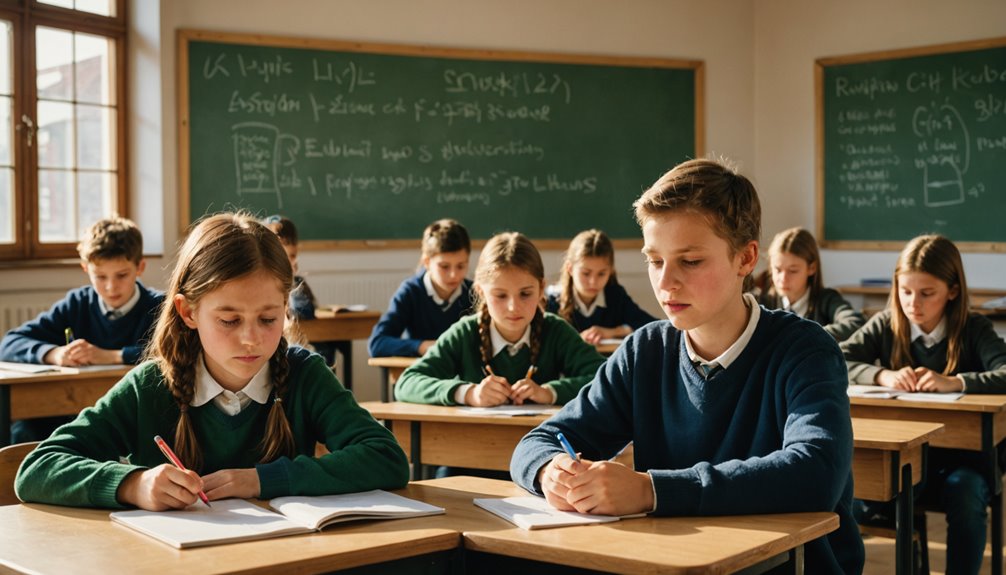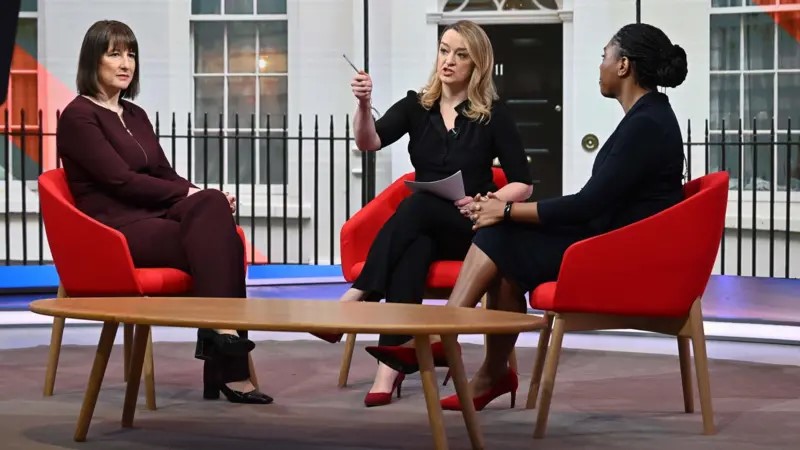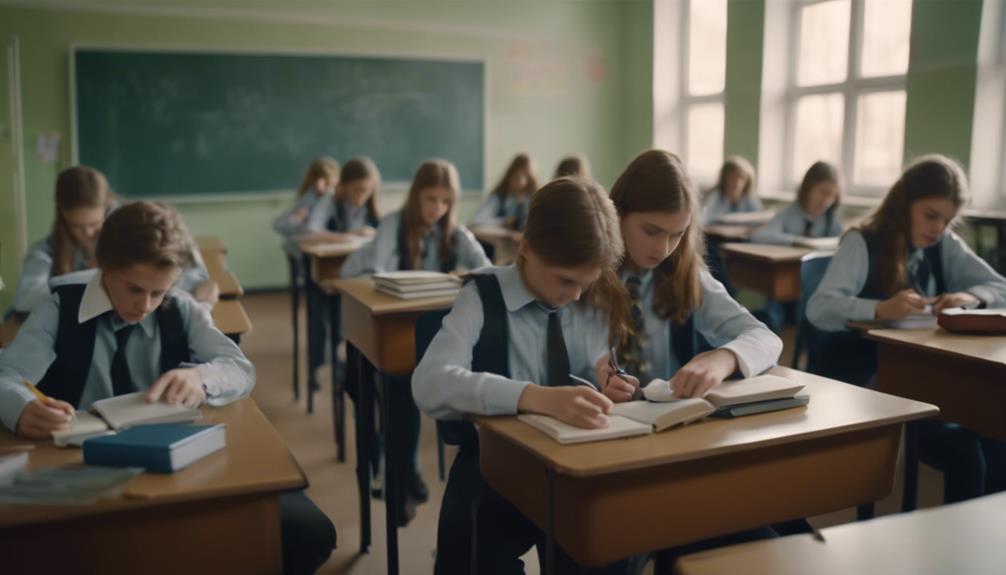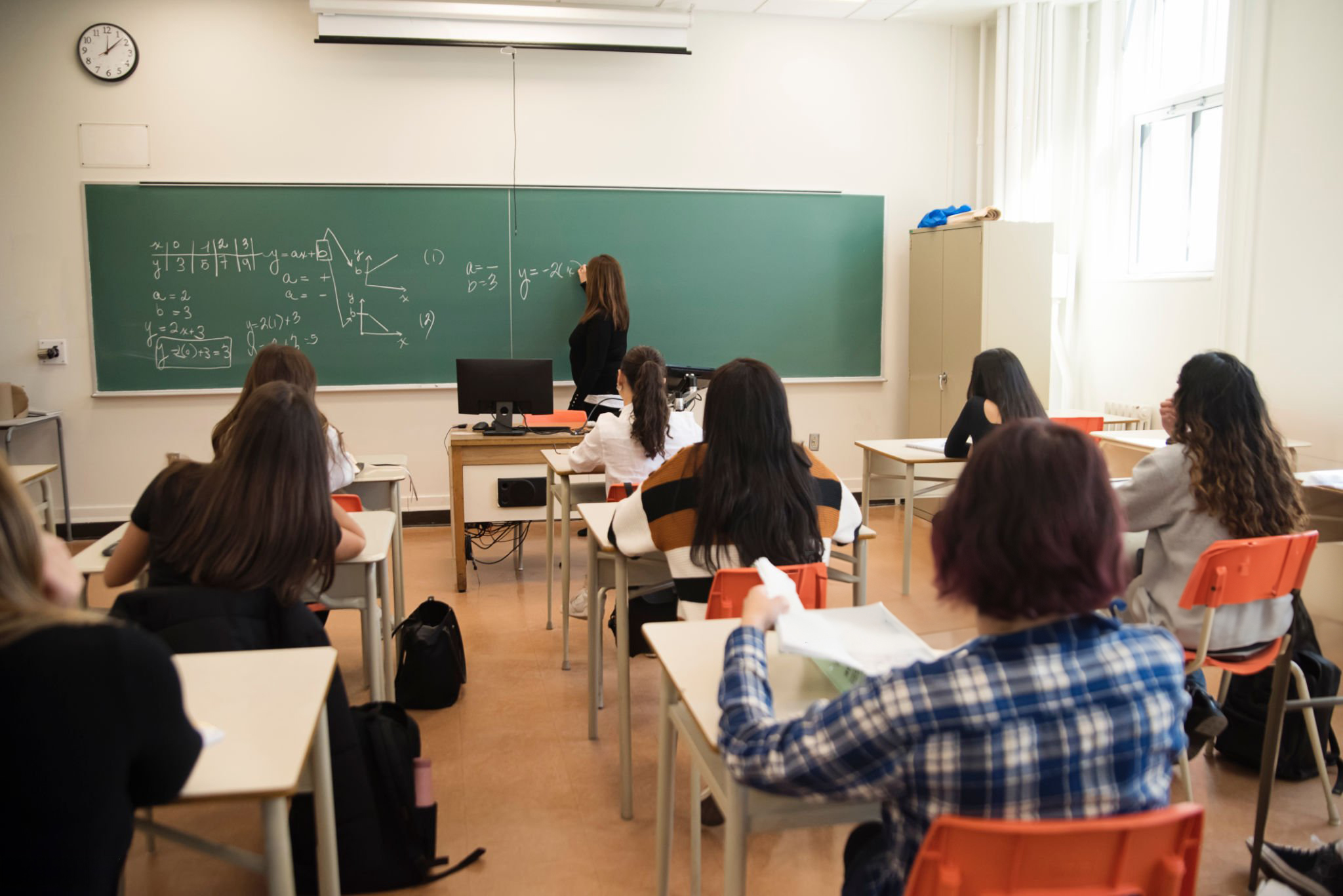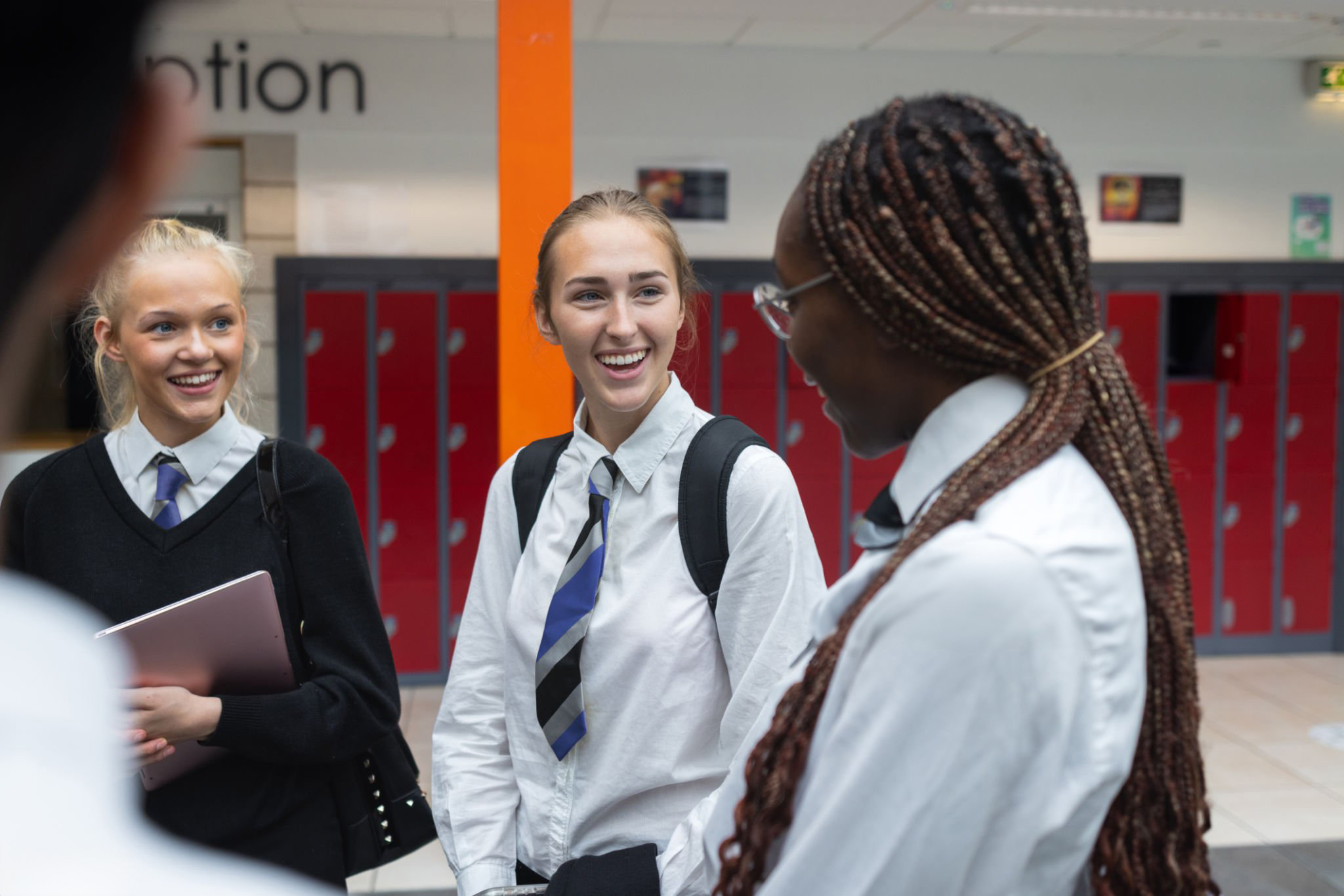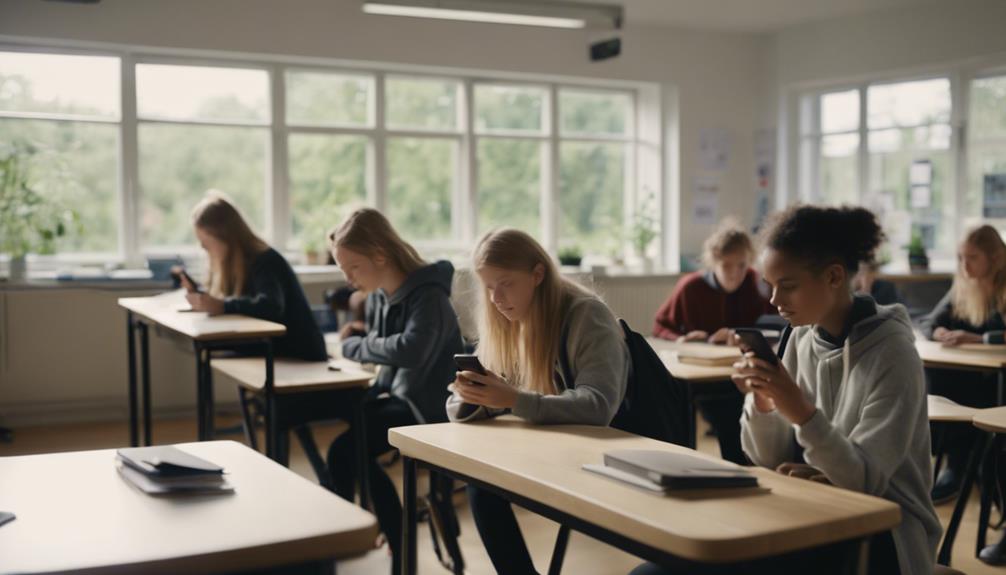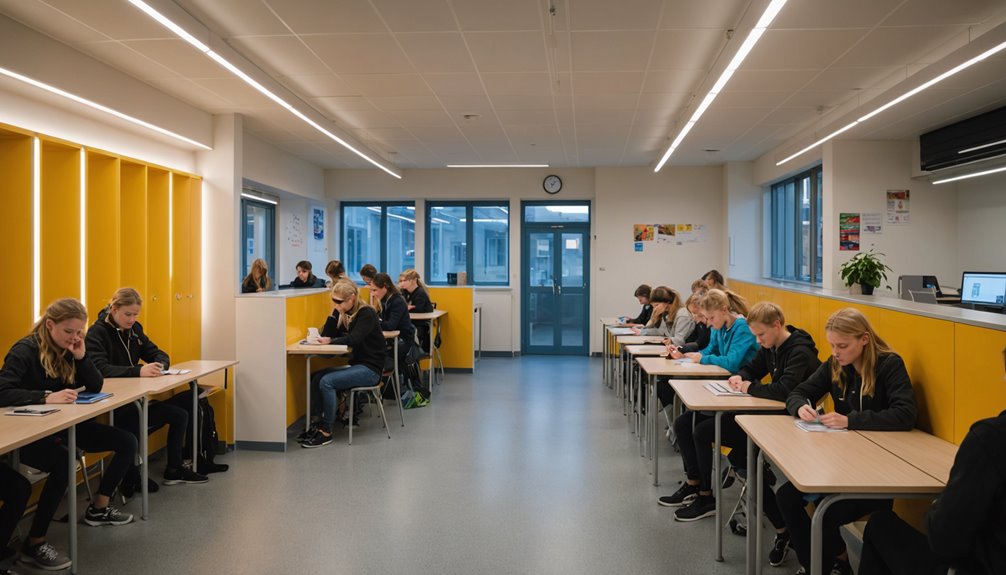Australia prohíbe los teléfonos móviles en clase
Australia prohíbe los teléfonos móviles en clase
Australia prohíbe los teléfonos móviles en clase
En un intento por mejorar los resultados de aprendizaje y reducir las distracciones, durante 2023 Australia anunció la prohibición del uso de teléfonos móviles en las aulas, con excepción del Territorio de la Capital Australiana (ACT). Mientras tanto, a las escuelas no estatales se les permitió la discreción para decidir e implementar sus propias políticas.
Resumen
Todos los estados australianos han implementado la prohibición de los teléfonos móviles en las escuelas, excepto el Territorio de la Capital Australiana (ACT).
La prohibición tiene como objetivo mejorar los resultados de aprendizaje y reducir las distracciones causadas por el uso de teléfonos móviles en las escuelas.
La prohibición requiere que los estudiantes mantengan sus teléfonos lejos durante todo el día escolar, pero les permite llevarlos para comunicarse con sus padres o tutores antes o después del horario escolar.
Las escuelas privadas de Australia también han implementado prohibiciones sobre el uso de teléfonos móviles para reducir las distracciones, abordar el ciberacoso y mejorar los resultados del aprendizaje.
Cómo se produjo la prohibición de los teléfonos móviles en Australia
En 2020, Victoria fue el primer estado en implementar la prohibición de usar teléfonos móviles en las escuelas. Le siguió Queensland en 2021 y, en 2023, Australia del Sur y Nueva Gales del Sur siguieron su ejemplo.
El objetivo principal de esta política es mejorar los resultados de aprendizaje y reducir las distracciones causadas por el uso de teléfonos móviles.
La prohibición provocó diversas reacciones por parte de padres, estudiantes y escuelas. Los padres expresaron su preocupación por cómo afectará la seguridad de sus hijos y su capacidad de comunicarse con ellos en caso de emergencia.
Sin embargo, un año después, Los resultados han sido muy positivos:
- 81% dice que el aprendizaje de los estudiantes ha mejorado desde que se prohibieron los teléfonos móviles
- 87% de directores dicen que los estudiantes están menos distraídos en el aula desde que se prohibieron los teléfonos móviles
- El 86% de los directores dice que la socialización ha mejorado desde la prohibición de los teléfonos móviles

¿Cuáles son las reglas por estado y territorio?
Australia Occidental: Los alumnos de los grados K a 6 de las escuelas públicas no pueden tener un teléfono en su poder, mientras que los de los grados 7 a 12 sí pueden, pero deben apagarlo y guardarlo. Los relojes inteligentes deben mantenerse en modo avión en la escuela.
Territorio del Norte: Los alumnos de preescolar a sexto grado de las escuelas públicas no pueden tener un teléfono en su poder. Los alumnos de séptimo a duodécimo grado pueden tener un teléfono en la escuela, pero debe estar apagado y guardado de forma segura. Los relojes inteligentes deben estar en modo avión.
Australia del Sur: Los estudiantes de las escuelas públicas deben mantener sus teléfonos móviles y otros dispositivos personales, como relojes inteligentes, apagados y guardados mientras están en la escuela. Cada escuela tiene su propia política sobre cómo funciona esto en la práctica.
Queensland: Los estudiantes de las escuelas públicas deben mantener los teléfonos móviles apagados y “fuera de casa durante el día” durante el horario escolar. Los dispositivos portátiles, como los relojes inteligentes, deben tener las notificaciones desactivadas. Cada escuela tiene su propia política sobre cómo funciona esto.
Nueva Gales del Sur: El uso de teléfonos móviles por parte de los estudiantes está prohibido en las escuelas públicas de primaria y secundaria. Existen diversas formas en las que las escuelas pueden implementar la prohibición a nivel local.
Territorio de la Capital Australiana: Los alumnos de los años P a 10 no pueden usar ni acceder a teléfonos móviles u otros dispositivos de comunicación personal durante la jornada escolar o durante eventos autorizados por la escuela. Los alumnos de los años 11 y 12 pueden tener sus teléfonos, pero deben guardarlos durante el horario escolar. Tasmania: Los alumnos de los años K a 12 deben tener sus teléfonos móviles apagados y guardados durante el horario escolar. Cada escuela tiene su propia política.
Victoria: Los estudiantes deben tener los teléfonos apagados y guardados de forma segura durante el horario escolar. Cada escuela tiene su propia política sobre cómo funciona esto en la práctica. Los dispositivos portátiles, tabletas y otros dispositivos personales deben tener las notificaciones desactivadas.
¿Cómo han implementado la prohibición las escuelas australianas?
Cada escuela tiene su propia política sobre cómo se implementa la prohibición, incluido dónde se almacenan los teléfonos, relojes inteligentes y tabletas, así como las consecuencias del incumplimiento.
Los estudiantes pueden traer sus teléfonos a la escuela por seguridad cuando viajan hacia y desde la escuela, y para ser contactados antes o después de la escuela.
En algunas escuelas, la prohibición es informal, mientras que en otras existen métodos precisos para garantizar su aplicación. En Phone Locker, hemos ayudado a muchas escuelas de Australia (y del mundo) con nuestra innovadora funda para teléfono con candado, a la que solo se puede acceder nuevamente mediante una estación de desbloqueo magnético en las salidas de la escuela.Mira cómo funciona).
Las fundas para teléfono con cerradura:
- Permite al estudiante conservar su propiedad
- Evita enfrentamientos con “confiscación” de teléfonos
- Previene trampas y otros usos no autorizados.
- Puede tener capacidad completa de bloqueo de señal.
- Se puede personalizar y se adapta a todos los teléfonos.
Para cualquier implementación de las bolsas Phone Locker, ayudamos en la implementación y tenemos todo, desde plantillas para escribir a los padres hasta pautas de preguntas frecuentes para los estudiantes. Ponte en contacto con nosotros para hablar sobre tu escuela y tener una charla sin compromiso..
Un año después, ¿cuáles han sido los resultados de la prohibición?
Nueva Gales del Sur tiene hallazgos anunciados Después de un año de implementación, afirman que la prohibición de los teléfonos móviles ha mejorado el aprendizaje y la concentración de los estudiantes y ha alentado a los jóvenes a socializar más.
Como resultado, los expertos están pidiendo una prohibición nacional uniforme. El psicólogo infantil Michael Carr-Gregg pidió una política nacional sobre el tema que incluya a las escuelas privadas. Dijo:
“Le pediría a Jason Clare que hable con los directores que han hecho esto (y que consideren) una prohibición nacional uniforme. Si se prohíbe el uso de teléfonos móviles en una escuela, se conseguirá más interacción social, menos distracciones y mejores notas”.
Mientras tanto, el primer ministro de Australia del Sur, Peter Malinauskas, dijo que “la evidencia está ahí”: los niños están jugando entre ellos y no con sus teléfonos y que ha habido “una reducción en el comportamiento inapropiado”.
Los datos de informes escolares del estado indican que 63% disminución de “incidentes críticos que involucran redes sociales” en el primer semestre de este año en comparación con el mismo período de 2023 antes de la prohibición.

Lectura adicional…
Implementación en Queensland
La prohibición de los teléfonos móviles en Queensland entró en vigor en el primer trimestre de 2021. La nueva prohibición impuso una prohibición general del uso de teléfonos móviles en todas las escuelas estatales de Queensland, mientras que las escuelas no estatales tendrán la discreción de decidir e implementar sus propias políticas. El 95% de las escuelas estatales de Queensland ya tenían políticas vigentes que prohíben el uso de teléfonos móviles durante las horas de clase.
Una revisión realizada por la ex comisionada de Familia e Infancia de Queensland, Cheryl Vardon, recomendó la prohibición de teléfonos y ciertos dispositivos portátiles durante el horario escolar. Esto requerirá que los estudiantes mantengan sus teléfonos alejados durante todo el día escolar, pero aún pueden llevarlos para comunicarse con sus padres o cuidadores antes o después del horario escolar. Las escuelas privadas tienen la discreción de decidir e implementar sus propias políticas con respecto al uso de teléfonos móviles.
Al igual que las escuelas en otros países, muchas escuelas han tomado la opción de implementar la cerradura. Estuche magnético para teléfono Phone Locker, donde los estudiantes pueden tener sus teléfonos, pero solo pueden acceder a ellos cuando se les permite. Esto aborda los problemas de almacenamiento de teléfonos móviles y evita que se perciba como una medida punitiva para los estudiantes.
Prohibiciones de otros estados
Tras la implementación de la prohibición de los teléfonos móviles en Queensland, otros estados australianos también han implementado sus propias prohibiciones sobre el uso de teléfonos en las escuelas públicas. Victoria, Australia Occidental, Tasmania, el Territorio del Norte y Australia del Sur adoptaron políticas similares en 2020 y 2021 respectivamente. En 2023, Australia del Sur y Nueva Gales del Sur también implementaron prohibiciones.
Las preocupaciones y opiniones de los padres sobre la prohibición varían, pero muchos reconocen el posible impacto en el comportamiento de los estudiantes de limitar el uso del teléfono durante el horario escolar. Otros países, como Francia, han implementado prohibiciones similares con distinta eficacia. Se consideraron alternativas a la prohibición de los teléfonos, como la educación sobre el uso responsable, pero finalmente se consideraron insuficientes.
Será necesario abordar los posibles desafíos para hacer cumplir la prohibición, como el cumplimiento de los estudiantes y el seguimiento de los docentes. Sin embargo, la prohibición en las escuelas privadas queda a discreción de cada escuela. Aunque el enfoque puede diferir de un estado a otro, el objetivo es el mismo: mejorar los resultados del aprendizaje y la seguridad de los estudiantes.
¿Qué pasa con las escuelas privadas?
Si bien las escuelas públicas de Australia han implementado prohibiciones generales sobre el uso de teléfonos móviles, las escuelas privadas tienen la discreción de decidir e implementar sus propias políticas con respecto al uso de teléfonos móviles.
Algunas escuelas privadas, como SCEGGS Darlinghurst en Sydney, han implementado prohibiciones en el uso de teléfonos móviles con la intención de reducir las distracciones, abordar el acoso cibernético y mejorar los resultados de aprendizaje.
Las escuelas privadas también pueden considerar el uso de teléfonos móviles para beneficios educativos bajo ciertas condiciones. La aplicación de la política puede variar de una escuela a otra, ya que se fomenta la comunicación con los padres para garantizar una implementación exitosa.
Los estudiantes pueden usar sus teléfonos por seguridad mientras viajan hacia y desde la escuela, o para comunicaciones de emergencia con los padres. Además, las escuelas pueden aprobar exenciones en circunstancias excepcionales.
A través de esto, las escuelas privadas tienen como objetivo mejorar la participación de los estudiantes y crear un entorno de aprendizaje propicio, al tiempo que permiten la comunicación necesaria entre los estudiantes.
La prohibición ha tenido un impacto significativo en la dinámica del aula. Con los teléfonos fuera de los límites, los estudiantes ahora deben concentrarse en la tarea que tienen entre manos, lo que puede mejorar la concentración y los resultados del aprendizaje.
Además, los profesores tienen la oportunidad de crear un entorno de aprendizaje más colaborativo. También se encuentran disponibles alternativas de comunicación, como sistemas de correo electrónico escolares o aplicaciones de mensajería interna.
Exención de ACT
Pocas jurisdicciones australianas han implementado una prohibición de los teléfonos móviles tan estricta como los demás estados. El ACT es el único que no ha impuesto una prohibición general. La ministra de Educación, Yvette Berry, ha declarado que no hay planes para introducir una prohibición en el territorio. En cambio, el ACT se centra en ayudar a los estudiantes a comprender el comportamiento apropiado tanto en línea como fuera de ella.
El ACT puede tener estrategias alternativas para abordar las distracciones y el uso inadecuado de teléfonos móviles en las escuelas. Se pueden conceder exenciones a la prohibición por condiciones de salud, dificultades de aprendizaje, traducción de idiomas o circunstancias personales. Las escuelas privadas también tienen la discreción de decidir e implementar sus propias políticas con respecto al uso de teléfonos móviles. Esto puede incluir permitir el uso de dispositivos personales en determinadas circunstancias de aprendizaje.
El enfoque de ACT sobre el uso de teléfonos móviles en las escuelas puede diferir del de otros estados y territorios. Sin embargo, el objetivo general sigue siendo el mismo: reducir las distracciones y mejorar los resultados del aprendizaje de los estudiantes.
¿Existen exenciones individuales?
En circunstancias excepcionales, se pueden conceder exenciones a la prohibición de los teléfonos móviles en las escuelas australianas. Se pueden aprobar exenciones por condiciones de salud, dificultades de aprendizaje, traducción de idiomas o circunstancias personales. Las escuelas tienen la discreción de decidir su propio proceso de exención y pueden considerar el uso de teléfonos móviles con fines educativos bajo ciertas condiciones. Sin embargo, los relojes inteligentes, tabletas y otros dispositivos personales también están incluidos en la prohibición.
La información detallada sobre cómo y cuándo se pueden otorgar exenciones está disponible directamente en la escuela. En algunos casos, la escuela también puede permitir el uso de dispositivos personales en determinadas circunstancias de aprendizaje. Sin embargo, esto está sujeto a las políticas escolares individuales y debe ser aprobado por la escuela antes de su uso.


